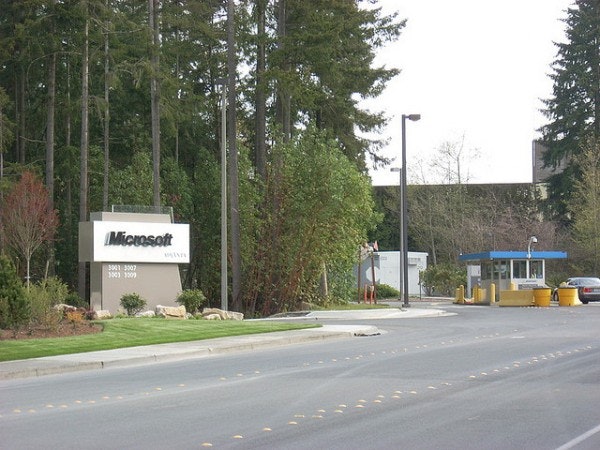In an unanticipated development, Barnes & Noble, Inc. (NYSE:BKS)‘s current chairman has announced preliminary plans to buy out the company’s surprisingly robust bookstore division and spin off its suddenly-struggling Nook e-reader segment. Although the company had been considering a Nook spin-off for some time, the timing and structure of this deal caught investors off guard. It seems as if the Nook’s terrible sales figures during the 2012 holiday season made it clear that the company can no longer rely on the device to spur sustainable growth.

About Barnes & Noble
New York-based Barnes & Noble, Inc. (NYSE:BKS) is the United States’s last major bricks and mortar bookseller. The company operates several hundred mass market bookstores and several hundred education-focused bookstores in North America. Although Barnes & Noble continues to shut outlets at a rapid clip, it still operates a total of about 1,300 physical locations. Most of these outlets contain coffee shops, reading areas, music sections and other amenities. The company also designs, builds and markets the Nook family of e-readers and tablets. In addition, Barnes & Noble, Inc. (NYSE:BKS) operates a full-service e-commerce division that sells books, e-books and branded apparel. The company employs over 30,000 people and lost $61.6 million on gross 2012 revenues of $7.2 billion.
How the deal is structured
Although Riggio has formalized his intention to buy out Barnes & Noble, Inc. (NYSE:BKS)’s bookstore division with an SEC filing, the deal is still in its preliminary stages and may undergo significant changes. Crucially, no offer price has yet been set for the bookstore portion of the company.
Further, the means by which the Nook division will be valued in the event of a spin-off remains unclear. Although the prices that Microsoft Corporation (NASDAQ:MSFT) and Pearson PLC (ADR) (NYSE:PSO) paid for their minority Nook stakes last year appear to value the division at $1.5 billion or more, it is likely that its value has slipped somewhat as a result of its sub-par performance. Microsoft Corporation (NASDAQ:MSFT) could certainly purchase the entire company if it wanted, since it has $68 billion in cash but it seems that it is investing money in its own tablet instead. Microsoft Corporation (NASDAQ:MSFT)’s tablet, the Surface, has sold about 1.5 million units, according to Bloomberg. Since Barnes & Noble’s total market capitalization is less than $1 billion, it appears doubtful that the company’s bookstore business will fetch more than this amount.
However, current Barnes & Noble, Inc. (NYSE:BKS) shareholders have reason to be optimistic about the deal. Prior to the announcement, the company’s stock was trading at just above $13 per share. Since news of the potential deal broke, its value has risen by more than 20%. It seems clear that the company’s shareholders expect the deal to value the company’s shares at more than $15 apiece. A valuation of $16 or even $17 per share might be more appropriate. If this is the case, shareholders stand to earn a further return of 5-10%.
Complications and potential legal issues
Depending upon the structure of the deal, it appears likely that Riggio’s bid for Barnes & Noble’s bookstore division would be subject to a customary shareholder approval vote. If the price for the division is set fairly, there is no reason that such a vote would not meet with resounding approval. At best, the company faces several years of sluggish sales growth. In such a challenging environment, a sustained recovery that sees Barnes & Noble, Inc. (NYSE:BKS)’s share price exceed $20 on a permanent basis appears unlikely. As such, this deal may represent the best possible exit strategy for long-term shareholders.
Outlook, competition and prospects
The post-deal fate of the company’s Nook division remains unclear as well. Given its seemingly terminal sales slump, an independent Nook may be forced to reorder its business model or enter a closer partnership with one of its minority stakeholders. At this point, it seems clear that its device cannot compete with more dynamic offerings from Amazon.com, Inc. (NASDAQ:AMZN). Amazon’s Kindle is a direct competitor with the Nook as they perform the same limited tasks, but the Kindle’s sales are far greater. On top of this, Amazon also has the Kindle Fire, which can perform many more tasks and has many more R&D dollars behind it. In other words, Nook’s days as a pure e-reader company may be numbered. As it currently stands, Amazon and Apple Inc. (NASDAQ:AAPL) are simply too strong for the much smaller company to fight.
This does not necessarily mean that the spin-off will provide no value for shareholders. In fact, a spun-off Nook division might quickly become takeover bait for a larger company. Microsoft Corporation (NASDAQ:MSFT) would be the company’s most obvious acquirer. While such a deal might not provide a tremendous premium for the spun-off company’s shareholders, it would nevertheless provide some incentive for everyday investors to take another look.
In sum, Leonard Riggio’s proposal to take Barnes & Noble’s bookstore division private offers some immediate benefits for the company’s current shareholders. In the future, a spun-off Nook division could also serve as takeover bait for a larger technology company and provide an additional arbitrage opportunity. Despite the fact that it takes place in a declining industry, this deal clearly bears watching.
The article The Nook’s Slow Death originally appeared on Fool.com and is written by Mike Thiessen.
Copyright © 1995 – 2013 The Motley Fool, LLC. All rights reserved. The Motley Fool has a disclosure policy.
